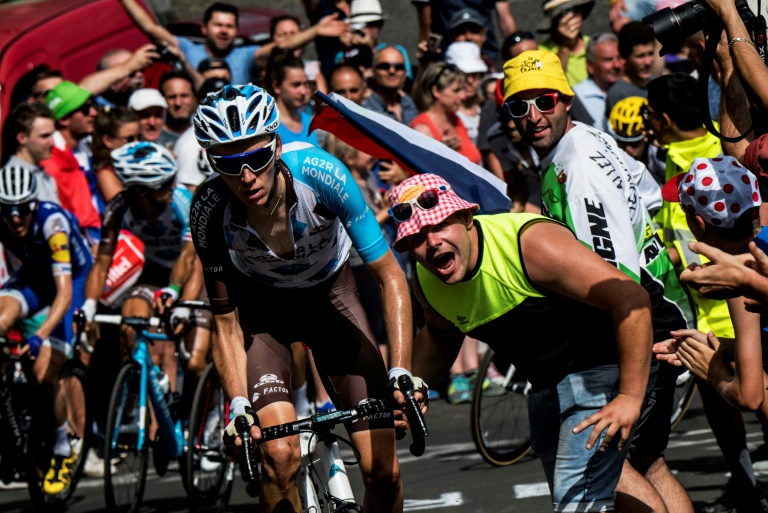EFF rejects invitation to attend MK party’s anniversary rally
With 10-12 million roadside fans watching the race who can throw away between 10 and 20 tonnes of rubbish on a single stage, and the publicity caravan distributing millions of little promotional objects, often wrapped in plastic, the top priority for Tour organisers is to manage its waste.
“Awareness began at the beginning of the 2000s. We said we need to leave the route and the landscape in the same state that we found it,” said Philippe Sudres, the Tour’s director of communication, referencing photos of Mont Ventoux covered in rubbish that greatly harmed the Tour’s image.
Other than provoking the criticism of fans, it also angered local councils “because it cost a lot of money” to clear up the rubbish, according to Andre Bancala, the Tour’s coordinator for the assembly of departments.
However, some 100,000 bags are distributed to local councils during the Tour to clean up the mess “the same day” the Tour passes, or at worst “a day later, rather than a week later as before”, added Bancala.

10-12 million roadside fans watching the Tour de France race can throw away between 10 and 20 tonnes of rubbish on a single stage
Waste collection zones have also been stationed in the riders’ feed zones or at the foot of climbs these last four years, where riders can discard their water bottles.
“We thought it was important that riders didn’t give the impression they throw away whatever, wherever,” said Sudres.
A 2013 estimate said that the Tour’s carbon imprint was 341,000 tonnes, although that dropped to just 22,500 tonnes if removing roadside fans and television audiences from the equation.
However, in comparison, the carbon imprint of the 2016 football World Cup in Brazil was around 2.7 million tonnes.
The Tour signed a Ministry of Sport charter of 15 eco-responsible commitments earlier this year, in conjunction with the World Wildlife Federation (WWF), aimed at limiting its impact on the environment.
Firstly, the Tour has tried to limit the number of vehicles on the course during each stage and set a maximum speed limit of 80kph, while Sudres said a proposition to allow only electric cars is also being considered.
Part of the Tour’s commitment is to “compensate” for for its carbon imprint by associating itself with a forest project at the foot of the iconic Mont Ventoux.
But there is currently no plan to buy carbon credits.
“We’re not going to start green-washing,” said Sudres.
“We’re fighting to have the green jersey but it’s a progressive process.”
Download our app and read this and other great stories on the move. Available for Android and iOS.